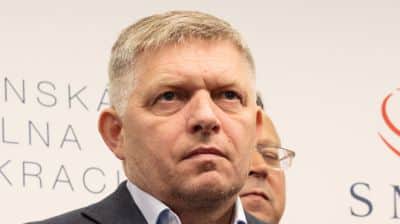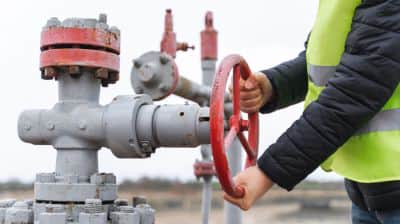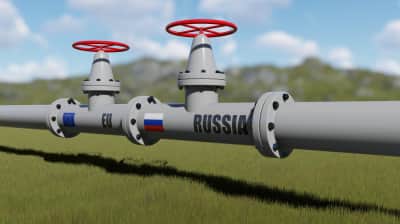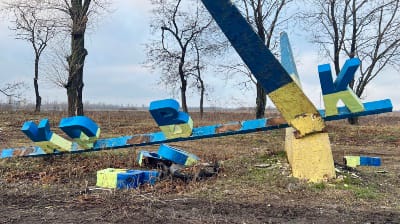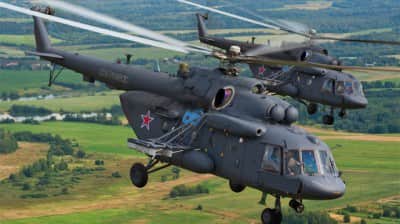EU still imports 50% of Russian LNG, worth US$1 billion a month
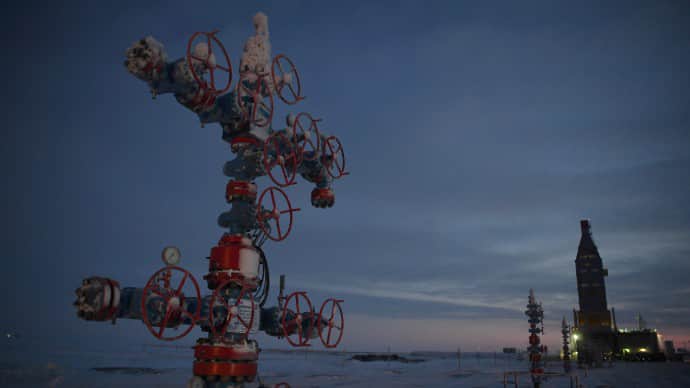
Almost two years after the start of Russia's full-scale invasion of Ukraine, European countries continue to import Russian Arctic liquefied natural gas (LNG) in record volumes.
Source: Нigh North News with reference to a report by the Centre for Research on Energy and Clean Air (CREA) and the Business4Ukraine coalition.
Quote from Нigh North News: "In contrast to the United States, the EU has thus far not placed any sanctions on the import of LNG. As a result the EU remains a destination for 50 percent of Russia’s LNG exports, sending in excess of US$1 billion each month to the country."
Details: The experts have described in detail how LNG has now become the main Russian fossil fuel purchased by the EU.
A new analysis of the distribution of Russian fossil fuels has revealed the ongoing and steady import of LNG by EU countries.
Quote from the report: "Russia saw a surge in revenue from LNG exports, particularly as its LNG remains unsanctioned by the EU. From December 2022 to October 2023, half of Russia's LNG exports, totalling €8.3 billion, were directed to the EU market."
Details: Up to a dozen European countries buy Russian LNG. However, the key importers are Belgium, Spain and France, which together accounted for 88% of Russian LNG imports to the EU over the past 10 months.
Quote from High North News: "EU ports receive in excess of 200 shipments from Russia’s Yamal LNG facility per year. The volume of imported LNG is now so significant that it has surpassed other forms of Russian fossil fuels."
More details: LNG is produced at the Yamal LNG plant in the Russian Arctic.
And with a second project, Arctic LNG 2, set to be launched in the coming weeks, EU imports could rise even further in 2024.
EU ports help Russian LNG
The EU also facilitates the transshipment of Russian LNG to buyers outside the continent. More than 20% of Yamal LNG passes through terminals in Europe, where it is transshipped from specialised ice-capable vessels to conventional LNG tankers for onward transportation.
A key hub is the port of Zeebrugge, where Fluxys, a natural gas transmission system operator, operates a regasification and storage terminal. In 2015, the company signed a long-term storage agreement with Novatek until 2035. The agreement allows for up to 8 million tonnes of LNG to be transferred through the facility in approximately 105 batches.
European companies also remain involved in the operation of Novatek's LNG tanker fleet. Norway's Assuranceforeningen Skuld, a marine insurance company based in Oslo, continues to provide protection and indemnity insurance for three of the LNG tankers that transport LNG between the Arctic and European markets.
Quote from the report: "EU Member States should immediately ban transhipment of Russian LNG in their ports that further travels onwards to non-EU destinations. Russia is reliant on these ports for the logistics and storage of LNG that travel to non-EU destinations."
More details: Moreover, the experts said that phasing out the transshipment of Russian LNG would not be a challenging step.
Support UP or become our patron!
